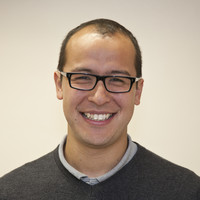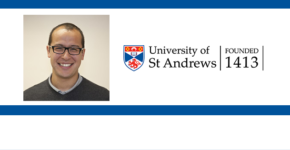 Are you having déjà vu?
Are you having déjà vu?
Akira O’Connor, Lecturer in the School of Psychology & Neuroscience at the University of St. Andrews, discusses a new insight into this mysterious phenomenon.
I am interested in how contextual information and our expectations help (and hinder) the judgements we make about our memories. My research employs laboratory, online and neuroscientific experiments. In my spare time I enjoy running – I am a member of Leven Las Vegas running club.
Deja Vu
Déjà vu is the eerie feeling of familiarity for something we know shouldn’t be quite so familiar. Surveys tell us that over two thirds of the population experience it, and that it occurs most in young people. But, psychologists have little idea of how or why it arises, and we have struggled to generate it ‘on demand’ in the lab.
A new method developed by my team offers insight into the real-time experience of déjà vu. In a memory test, we generated feelings of familiarity for an unstudied critical word whose meaning was linked to a series of words that our participants had previously studied. Crucially, we pointed out memorable characteristics of this critical word that suggested this sense of familiarity must be wrong. These two conflicting memory evaluations led the majority of our participants to report déjà vu during the experiment.
Using functional MRI, we found that the medial prefrontal cortex, a brain area known to support conflict detection, became active in response to critical words. In fact, the amount of activation in medial prefrontal cortex was linked to the likelihood of our participants reporting déjà vu. Surprisingly, there was no link between déjà vu reports and brain areas that support memory signalling itself.
These are the first findings to suggest that déjà vu results from the correction of a memory error, rather than the memory error alone. Thinking about it in this way could explain why young people, who tend to make fewer memory errors, experience déjà vu most. Perhaps most importantly, they offer an insight into the role of what is typically thought of as just a quirk of the mind.

Comments
2 responses to “Akira O’Connor, University of St. Andrews – Deja Vu”
I have and a am experience this word vibration deja Vu . Some of you got it wrong . And yes when it happens it can put self into a dissonance with reality. There is the present and the resonance there of. The brain has to get center in it’s space. To see place and accept the information given. Want to know more get hold of me been it this a long time. Of my research. Deja Vu is Moe them just a word . My name is Terry I call my experience DEJA PHI SARANA AND THIS IS HOW I MOVE WITH IT. WE ARE NOT CRAZY JUST ASK OF THE MANY ON THIS EARTH PLAN
Hello sir I just wanted to tell you that I experience deja vu maybe once or twice a month, sometimes more. I know that it was a dream that I had one to two weeks prior. I remember the dream vividly and everything is exact. I’m not telling you I know the future because when it happens it’s always an insignificant dream but you might want to take a different approach. It’s been happening to me for over 45 years. People say that looks familiar deja vu but it’s actually a dream they had earlier and don’t remember the dream
•